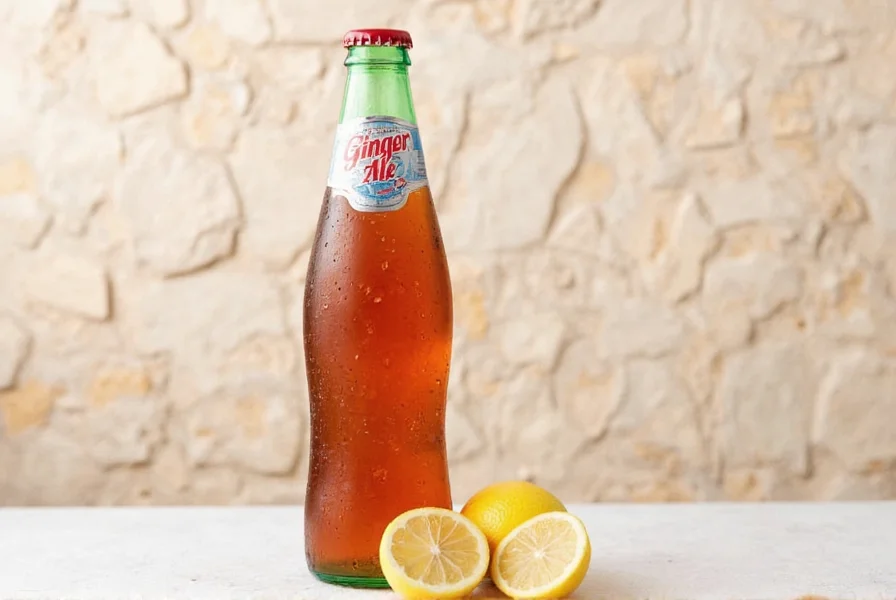Based on current medical evidence, traditional ginger ale does not effectively help with diarrhea and may actually worsen symptoms due to its high sugar content. While ginger itself has anti-nausea properties, most commercial ginger ales contain minimal actual ginger and excessive sugar, which can exacerbate diarrhea through osmotic effects. For proper hydration during diarrhea, oral rehydration solutions are significantly more effective than ginger ale.
When you're experiencing diarrhea, finding relief becomes an urgent priority. Many people reach for ginger ale based on longstanding home remedy traditions, but does this popular beverage actually help with diarrhea? Let's examine the science behind this common practice and identify more effective solutions for digestive discomfort.
Understanding Diarrhea and Hydration Needs
Diarrhea occurs when your digestive system moves contents too quickly through the intestines, resulting in loose, watery stools. During this condition, your body loses significant amounts of fluids and electrolytes. Proper rehydration isn't just about replacing lost water—it requires balancing sodium, potassium, and glucose to facilitate optimal fluid absorption in the intestines.
The World Health Organization emphasizes that effective rehydration solutions contain specific ratios of salt and sugar to maximize absorption. Traditional ginger ale fails to provide these critical electrolytes in appropriate concentrations, making it an inadequate choice for diarrhea recovery.
The Science Behind Ginger and Digestive Health
Ginger root contains active compounds called gingerols that have demonstrated anti-nausea and anti-inflammatory properties in scientific studies. Research published in the European Journal of Gastroenterology & Hepatology shows ginger can help reduce nausea and vomiting, which explains why it's often recommended for motion sickness and morning sickness.
However, the therapeutic benefits of ginger for digestive issues don't automatically transfer to commercial ginger ale. Most mainstream ginger ale brands contain only trace amounts of actual ginger extract—often less than 0.5%—while being loaded with high-fructose corn syrup or sucrose. The carbonation and acidity in these beverages can also irritate sensitive digestive systems.
| Component | Traditional Ginger Ale | Medical-Grade Oral Rehydration Solution |
|---|---|---|
| Ginger Content | Negligible (0.1-0.5%) | None |
| Sugar Concentration | High (20-25g per 8oz) | Optimal (14g per 8oz) |
| Electrolytes | Minimal | Optimal balance of sodium, potassium |
| Carbonation | Present | Absent |
| Recommended for Diarrhea | No | Yes |
Why Ginger Ale Became Popular for Digestive Issues
The association between ginger ale and digestive relief stems from historical practices when ginger ale contained significantly more actual ginger. Early 20th century recipes used real ginger root, providing genuine therapeutic benefits. Modern commercial versions, however, prioritize flavor and shelf stability over medicinal properties.
Additionally, the placebo effect plays a role—many people feel better after consuming ginger ale simply because they expect it to help. While this psychological benefit has value, it shouldn't be confused with actual physiological improvement in diarrhea symptoms.
Better Alternatives for Diarrhea Relief
For effective management of diarrhea, consider these evidence-based alternatives:
- Oral rehydration solutions (ORS): Specifically formulated with the right balance of electrolytes and sugar to maximize fluid absorption
- Clear broths: Provide sodium and some nutrients without irritating the digestive tract
- Diluted apple juice: In a 1:1 ratio with water for children (per American Academy of Pediatrics guidelines)
- Real ginger preparations: Fresh ginger tea with minimal honey, containing actual therapeutic compounds
When selecting beverages during diarrhea episodes, remember the BRAT diet principle (Bananas, Rice, Applesauce, Toast) focuses on low-fiber, binding foods—not carbonated, sugary drinks that can worsen symptoms.
When Ginger Might Actually Help
While traditional ginger ale isn't recommended, certain situations might benefit from ginger's properties:
- When nausea accompanies diarrhea (as in stomach flu)
- Using fresh ginger preparations rather than commercial ginger ale
- After the acute phase of diarrhea has passed and you're transitioning to solid foods
A 2020 review in Nutrients journal confirmed that ginger supplementation showed promise for nausea reduction but noted insufficient evidence for direct diarrhea treatment. The anti-inflammatory properties might support overall digestive recovery, but not as a primary treatment for loose stools.
When to Seek Medical Attention
Most diarrhea cases resolve within 48 hours with proper hydration. Contact a healthcare provider if you experience:
- Diarrhea lasting more than 2 days
- Signs of dehydration (dizziness, reduced urination, extreme thirst)
- Blood or black stools
- High fever (above 102°F or 39°C)
- Severe abdominal pain
For infants and elderly individuals, seek medical advice sooner as dehydration can become dangerous more quickly. Remember that persistent diarrhea could indicate underlying conditions requiring professional diagnosis.
Evidence-Based Hydration Strategies
Instead of reaching for ginger ale when diarrhea strikes, implement these hydration strategies supported by gastroenterology research:
- Sip small amounts frequently: 2-4 ounces every 15-30 minutes rather than large volumes at once
- Use oral rehydration solutions: Available at pharmacies or made at home with WHO formula (6 level teaspoons sugar, 1/2 level teaspoon salt in 1 liter clean water)
- Avoid problematic beverages: Including sugary drinks, caffeine, and alcohol which can worsen symptoms
- Monitor urine color: Aim for pale yellow as an indicator of proper hydration
- Gradually reintroduce foods: Following the BRAT diet progression once liquids are tolerated
Research from the Journal of Clinical Gastroenterology confirms that proper hydration management reduces diarrhea duration by approximately 24 hours compared to inadequate fluid replacement. This evidence-based approach delivers significantly better results than traditional remedies like ginger ale for diarrhea relief.











 浙公网安备
33010002000092号
浙公网安备
33010002000092号 浙B2-20120091-4
浙B2-20120091-4